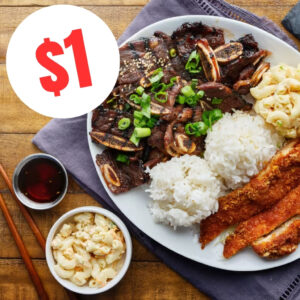Let’s face it: mornings are hectic. Between rushing to get ready, managing kids, and tackling the daily commute, finding time for a nutritious breakfast often feels impossible. But skipping breakfast is a recipe for low energy, poor focus, and increased cravings later in the day. That’s where the concept of “healthy fast food breakfast” comes in. It’s about making smart choices even when time is short. As the popular health and wellness blog, “Nourish Your Life,” famously states: “A healthy breakfast doesn’t have to be complicated; it just has to be nutritious and convenient.” This article will guide you through navigating the fast-food landscape to find options that nourish your body and jumpstart your day, without sacrificing your precious time.
Understanding the Challenges of a Quick Breakfast
The primary challenge in finding a healthy fast-food breakfast lies in the prevalence of high-sugar, high-fat, and low-nutrient options. Many fast-food chains prioritize speed and taste over nutritional value, leading to breakfasts loaded with processed ingredients and empty calories. Understanding these pitfalls allows us to make more informed decisions.
- High Sugar Content: Many breakfast sandwiches and pastries are packed with added sugars, leading to a blood sugar spike followed by a crash, leaving you feeling sluggish and craving more sugar.
- Excessive Fat: Breakfast options often contain high levels of unhealthy saturated and trans fats, contributing to weight gain and an increased risk of heart disease.
- Lack of Essential Nutrients: Many fast-food breakfasts are lacking in essential vitamins, minerals, and fiber, leaving you feeling unsatisfied and lacking the energy to power through your day.
- Large Portion Sizes: Fast-food portions are often oversized, leading to excessive calorie intake, even with seemingly healthy options.
Smart Strategies for Choosing Healthy Fast Food Breakfast
Despite the challenges, healthy fast food breakfast options do exist. By employing the following strategies, you can significantly improve the nutritional value of your morning meal even on the go:
- Look for whole grains: Opt for breakfast sandwiches on whole-wheat English muffins or tortillas instead of white bread or sugary pastries.
- Prioritize protein: Protein keeps you feeling full and energized for longer. Choose breakfast options with eggs, lean meats, or Greek yogurt.
- Add fruits and vegetables: Increase the nutritional value of your breakfast by adding fresh fruits or vegetables. Many chains offer fruit cups or allow you to customize your order.
- Control portion sizes: Be mindful of the amount you’re consuming. Consider sharing a meal or taking half home for later.
- Read nutrition labels carefully: Pay close attention to the calories, fat, sugar, and sodium content before making your selection.
- Limit sugary drinks: Avoid sugary juices and sodas. Opt for water, unsweetened tea, or black coffee instead.
- Choose oatmeal (when available): Many fast-food establishments offer oatmeal as a breakfast option, which is a naturally healthy choice rich in fiber.
Analyzing Popular Fast Food Breakfast Choices
Let’s examine some common fast-food breakfast items and determine their nutritional merits (or lack thereof) to illustrate the principles discussed above:
Breakfast Sandwiches
- Egg McMuffin (McDonald’s): While convenient, it’s high in sodium and saturated fat. Consider removing the cheese to reduce the fat content.
- Sausage, Egg & Cheese Croissant (Starbucks): The croissant is high in refined carbohydrates and fat. Look for alternatives like egg-white and veggie options.
- Steak, Egg & Cheese Bagel (Subway): This could be a reasonably healthy option, depending on the type of bagel. Opt for a whole-wheat bagel and request fewer cheese and additional vegetables.
Yogurt Parfaits
- Yogurt Parfaits (Various Chains): These can be good sources of protein and calcium. However, watch out for excessive added sugar. Choose options with less added sugar and more fruit.
Oatmeal
- Oatmeal (Various Chains): Oatmeal is a highly nutritious breakfast choice, packed with fiber and essential nutrients. Customize your bowl by adding fruits and nuts.
Other Options
- Breakfast Burritos: These can be a good source of protein and fiber, but often contain high levels of fat and sodium. Choose whole-wheat tortillas and load up on vegetables.
- Fruit and Yogurt Cups: Often a good choice, but be wary of added sugars and artificial sweeteners.
- Breakfast Wraps: Similar to burritos, but often smaller and potentially lower in calories. Choose whole wheat wraps and add vegetables.
Creating Your Own Healthy Fast Food Breakfast
If you’re truly aiming for the healthiest option, consider customizing your order at fast-food restaurants to create a healthier meal. Many chains allow for modifications. For example:
- Request egg whites instead of whole eggs: This significantly reduces cholesterol and saturated fat.
- Substitute whole-wheat bread or tortillas: Increases fiber intake.
- Add vegetables: Increases vitamins, minerals, and fiber.
- Reduce cheese or sauces: Reduces fat and sodium.
- Ask for your breakfast sandwich without the meat: Provides a significant reduction in calories and saturated fat.
Healthy Fast Food Breakfast Alternatives
If fast food is unavoidable, consider exploring healthier alternatives that may not be directly labelled “fast food,” but are still quick and convenient:
- Grab-and-go options from the grocery store: Pre-portioned yogurt, fruit, and granola bars can provide a nutritious and convenient breakfast.
- Overnight oats: Prepare a batch of overnight oats the night before for a quick and healthy breakfast in the morning.
- Hard-boiled eggs: A portable and protein-packed breakfast option that requires minimal preparation.
- Smoothies: Blend fruits, vegetables, and yogurt for a quick and nutritious smoothie.
